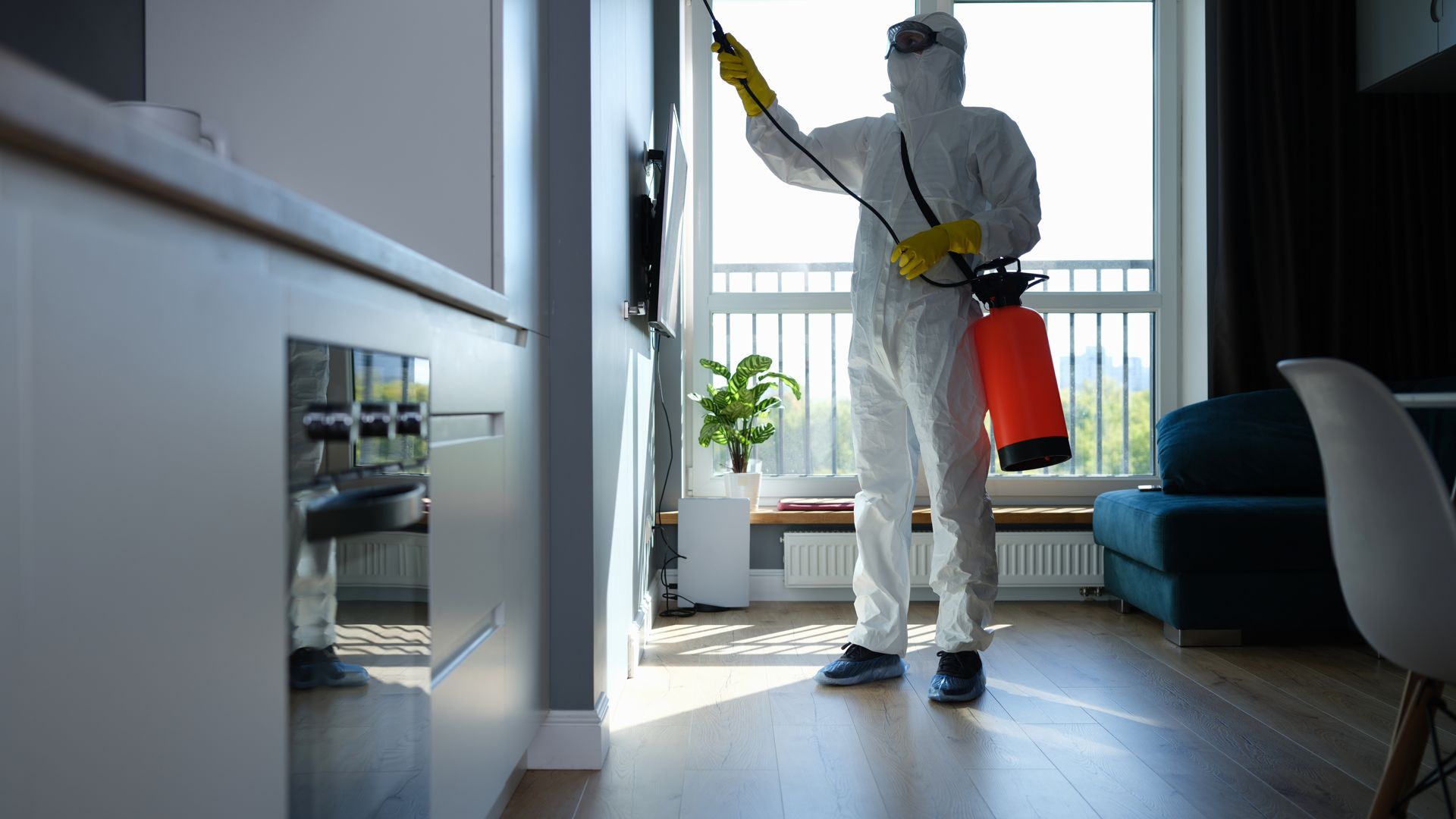
What It Takes To Get Rid Of A Mouse Infestation In Your Lewisville Home
When you go up into your attic to grab a stored box and see a little mouse running along a wall, you may wonder how that mouse got into your attic. It is so tiny, and your attic is way up there. You may also wonder if there are more, and what you need to do to rid your home of them. Getting rid of mice is hard to do when you have no idea how many mice you have, where they're hiding, and what works to capture them. Join us today as we discuss what it takes to get rid of a mouse infestation, how mice get up to your attic, what they do when they are up there, and some of the challenges of mouse control. If you currently need help with a mouse problem and would like to speak with someone about addressing these tiny rodents in your home, contact us. Our friendly and knowledgeable technicians know what works to stop mice and ensure no mice remain in your home after treatment. We also offer year-round pest control in Lewisville to keep mice and other pests out continually. We can help!
How To Identify A Mouse Infestation In Your Home
Obviously, seeing a mouse is a clear indication that you have mice in your home, but did you know that seeing one mouse is an indication of a severe infestation? Mice prefer to stay hidden and typically show themselves when they have to work hard to outcompete other mice for food. Overpopulation is a direct factor in whether or not you'll see mice. So, let's leave that one off the table. Here are some other ways you may detect mice.
- Mice noises will alert you to a problem. Were you wondering how a mouse gets to your attic? One way is that it chews a hole in a sole plate and works its way up through a wall void. If you hear scraping and bumping in your walls, that noise could be a mouse working its way up to your attic. It may also be a mouse going down to your kitchen to explore for food. It is rare to hear these noises because mice typically nest close to food sources. If a mouse is eating your pantry foods, it will live in your pantry wall rather than in your attic. So, this isn't a great way to detect mice.
- You may smell mice. As mice explore your home, they lay down droplets of urine to help them use their noses to navigate. If you have a lot of mice in your attic, you'll definitely notice the smell. When you search for mouse activity, don't forget to use your nose.
- You may find tiny, black fecal pellets. The best way to detect mice is to do an inspection and find their droppings. Mouse droppings are black and slightly smaller than grains of rice when fresh. Old droppings are grey. You can find droppings in your attic and on your attic insulation. They also appear in surprising places inside your home, such as in the backs of your kitchen drawers, shelves, and sink cabinets.
- Mouse holes are a good indication that mice are moving about in your home. When you find a hole, patch it. Doing so will help you tell if you have an active infestation. Look for these behind appliances, under cabinet overhangs, and around door frames.
- Dogs and cats act strange in kitchens when they detect mice. Your dog and cat can hear and smell things you cannot. If they're acting strange in the kitchen or near the pantry, you may have mice.
When you see a mouse or you detect warning signs of mice in attic spaces or other hidden places around your home, you won't know the number of mice you have. You'll just know that mice are active in your home. So, you may wonder, how does mouse detection relate to getting rid of mice? Mouse detection isn't only for determining that you have a mouse infestation. You can use mouse detection after you've taken steps to drive mice out. If you stop hearing noises, smelling urine, seeing fecal pellets, finding holes, and seeing your pets acting strangely, you know you're on the right track.
The Dangerous Diseases Mice Are Known To Spread
Mice are a danger when they get into your home. We're often asked, "What dangerous diseases do mice spread?" We'd like to start by saying that it is rare to get severely sick from mice. But, the unfortunate truth is that there are many ways a mouse can make you quite sick. Here's how it works.
- Contact with mouse droppings and urine while cleaning up contaminated areas can make you sick in many ways. The greatest concern is the hantavirus, which causes hantavirus pulmonary syndrome (HPS), but there are several other diseases associated with mice. Always wear gloves when cleaning up mouse droppings. When you're done, wash your hands with the gloves on, and again once you've removed the gloves. If you perform cleanup in a close area, such as an attic, wear a respirator mask.
- Mice pick up and spread bacteria and parasitic worms when they climb in trash receptacles, dumpsters, and sewers. These are a disease source in your home. Some of the many invisible organisms mice may spread are salmonella and E. coli. Thoroughly clean surfaces, counters, and dishes that are exposed to rodents.
- Mice pick up ticks and fleas when crawling around in landscaping, tall grass, and other outdoor areas. Ticks spread many scary diseases, including Lyme disease and Rocky Mountain spotted fever. Fleas spread bartonellosis and typhus. One little mouse can have as many as a hundred seed ticks on its body. Those are the larvae stage of tick development. When the larvae grow, they fall off the mouse and look for a larger host. That's when they bite people.
These diseases sound bad, but the greatest risk a mouse presents in your home has nothing to do with diseases. Those itty, bitty mice chew on things, such as wires and gas lines. Believe us when we say, you don't want mice chewing on wires in your walls. That is serious business! A house fire is a danger to your safety and property.
Once again, let's shift the topic back to how to get rid of mice. Two important steps you can take to make mice leave your home are to apply sanitation and protect your food. If you don't mind the hard work, these are helpful ways to get rid of mice naturally. Mice are strongly motivated by food. A little mouse will eat 15 to 20 times a day. They want to live as close to food as possible. A home that has no food debris, and no easy access to food, is less desirable to a mouse. When you apply these steps, you also reduce the ability for baby mice to get exposed to harmful things and spread them around your home. So, all-natural mouse control and disease prevention go hand-in-hand.


Why Choose Adams Exterminating?
-
Trained Entomologists & Service TechniciansOur team brings a deep understanding of insect biology and behavior to create targeted pest control strategies. We're equipped with the latest techniques and technologies to effectively eliminate pests.
-
Customized Plans for Every BudgetRecognizing that each space is different, we customize pest control services for every home or business. Our approach involves targeted solutions, addressing specific needs for your environment.
-
Trusted in the Community Since 1947With a legacy dating back to 1947, our pest control company brings decades of experience with a proven track record to keep your space critter-free.
-
Locally Owned & OperatedAs a locally owned business with offices in both Denton and Lewisville, we are rooted in the community and dedicated to serving our neighbors with personalized service.


